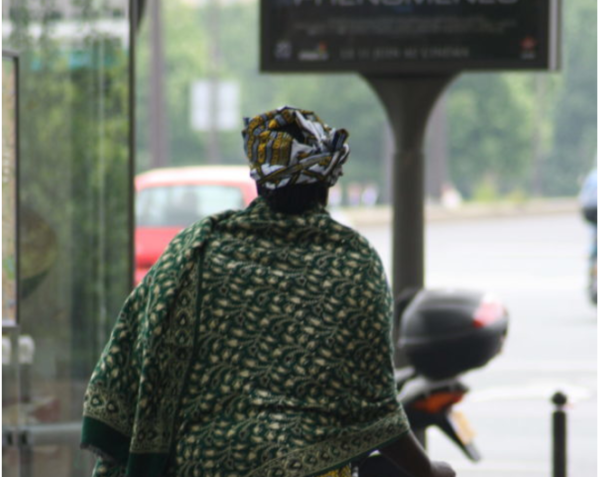
SOONER OR LATER in life—at one’s very last breath perhaps—something welcomes one to the world again; its strangeness; its shock; its cruelty; and its implausibility.
I didn’t get this sort of welcome in Lagos; I got it in the faraway North, Kano. I was thirteen. We (my two younger brothers, my mum and I) lived with a woman we understood was our aunt, our mummy’s elder sister. She was popularly known as Mama Hadiza. Albeit looking nothing like my mother—and somehow, I knew it was a lie that she’s an aunt—I bought one more of the many lies our mother fed us. We called her big mummy.
Mama Hadiza was a hulk of a woman; she was broad as a barn door with a face only a mother could love. She sold food at the garage, swallow. The canteen, a proper building (unlike the other bamboo stalls where ready food was sold around the motor park), had a three room apartment that served as our residence. The building went without plaster or paint and— in anticipation of its owner, I believe—was decked to have another construct overhead, thus, had iron rods edged out like horns on all four corners. On its main entrance, just above the door was written ‘Mama Hadiza’s Delicious’, a sign adorned in bright red colour on a white board. The house sat in solemnness betwixt two other uncompleted buildings, all shrouded in the harmattan dust, and all uncompleted throughout my short stay in the area.
The canteen wasn’t far from the main road; it was the first building at the mouth of it; just after the drainage. The single-lane road welcomed everyone to Panshekara. Panshekara was a big area floating on the north-eastern edge of Kano. Although far from the city Centre, Panshekara had a vibrant life of its own; buying and selling, drinking and flirting, fighting and stealing—and in one case during my stay, killing—runs through its nights. Its proximity to the border town of Guzo fueled its robust commercial activities.
It was our third week in the area. We mixed up in the energy fast—my brother, Teju, and I. We hawked, but clandestinely—our mummy was not to know. Mama Hadiza had told us it was a way of helping our mother. That we weren’t paying for the one room she gave us in her house because our mother couldn’t afford it. And that we were only being responsible boys by taking up the herculean task. And so, in the ever rustling and bustling park, we hawked Mama Hadiza’s Delicious.
It didn’t actually start as hawking. It used to be little errands to one customer in one of the inner lungus of the garage, Alhaji Muri. Then, two, three, four, five, at several other lungus, added: Mallam Ado, Oga Victor, Alhaji Yerima, Mallam Bako, Mallam Sani soon became our regulars. They were mostly commercial vehicle drivers. It then turned out if any of the original customers was indisposed, or wouldn’t want the food, we were to look for someone else who would buy. In time, this became full-blown hawking.
“You mustn’t bring the food back home,” Mama Hadiza would warn. She would sit us down, Teju and I. “If you ever, with your sharp mouth. You! With your mouth like that of tortoise….” She would brusquely stretch out her huge arm at Ade, pointing almost into his eyes. Ade was the youngest of us. He didn’t hawk. He only sat mute all day in the canteen.
“…if you ever tell your mother I sent you…. That day, you will pack out of my house and find somewhere else to stay,” she would reiterate just before we stepped out of the canteen, I with a cooler of wrapped Tuwo on my head, and Teju following me with what it must go with: the soup, already served in covered plastic containers. We would hit Panshekara and its dusty streets.
On the very night of my ‘welcome’, I had lost Mama Hadiza’s money. That evening, I came back home with an empty cooler and a hollow pocket, and little guts to explain the loss. But Mama Hadiza, on hearing that I lost her money, would not listen to any conjoining story. At first she opened her eyes at me as though I were a snake. Then she had her face like thunder and her two big arms vibrating with excessive flesh as she held and released her waist intermittently in rage. I could guess where, but not how, the money went. One moment it was there, and in two shakes of a lamb’s tail, it was gone. I dipped again and again my hands into the pockets fantasizing on any sign of its reappearance. I wished dearly a reverse of time. I wanted the magic to undo itself.
“Go back there and find the money!”
Her voice came at me like endless thunder, and her stretchmarks rooted out even wider from under her arms, traversing the face of her heavy chest. My fidgeting voice drowned in her shrieks.
“Do not ever think you have a home to come back to if you don’t find that money!” she barked. Determined to embark on an ‘ultimate search’, I stormed out and hit the dirt. Teju automatically followed.
“You come back here!”
She tore Teju from behind me and, with one hand, stumped his buttocks on the bench. I looked back at him through the lace curtains, he had mashed up his face in reading to cry. I took pity of him than I took of myself.
That night, I roamed the whole of Panshekara like a waif in the heaving harmattan. After trailing the usual paths, I derailed onto unfamiliar ones: through markets and streets; across various lungus and fields; along uncompleted buildings that homed people and the completed ones no one lived in; through bolas and dungeons; through the mosques always over flooded with faithfuls dawdling on straw mats. I peregrinated until everything started to look like Mama Hadiza’s money: animal dung, orange peel, sugarcane flesh, exhumed pieces of plastic, paper trash—anything deferring the colour of earth.
After a long while, I started looking for the ways back home. I had been determined to find the money but because I was hungry, I retraced my steps back home. I found home but couldn’t go in. I sat on a stone, making sure I couldn’t be seen from the canteen. There were silhouettes moving within the canteen. The one of Mama Hadiza was unmistakable; I dreaded at the sight of hers. Hunger kept eating me up. I grew weak and tired. That night, mother seemed to have stayed out extra late. The hunger coiled and re-coiled my vision. I writhed where I sat like a worm. To be certain I had not lost my sight perhaps, in the silver night, I looked to the sky. I cannot remember clearly why I had looked to the sky but I remember the moon was big and luminous. It stood there like nobody’s business; like it can be seized and owned only if I stretched, yet it buoyed beyond reach. And when I imagined how everything in it must be perfect, I burst into a cry and wept like the day I was born.
That was when I saw Hadiza approaching the canteen. She always came home late too, but usually earlier than mother. She was rumoured to have AIDS. Hadiza was Mama Hadiza’s only daughter. She was twenty-eight years old—I knew because Mama Hadiza, while fighting her daughter, always said it; taunting figures to her daughter like it was the most doleful abuse. In the picture of her in the house, Hadiza was beautiful and chubby and looked a lot younger than twenty-eight.
An older rumour was that her father, Mama Hadiza’s supposed husband who was a policeman, died in the Maitatsine riots when Mama Hadiza was just three months old with Hadiza’s pregnancy. A version Hadiza held true of her birth however, was that her father, a married man with children, denied being responsible for Mama Hadiza’s pregnancy, and that, in actual fact, Mama Hadiza didn’t know who was responsible at the time, so the man fled to a south-western state with his family.
Hadiza was well known in Panshekara. She used to hawk her mother’s food at a time. She stopped since she was always short-changing her mother and always at loggerheads with her—I believe she had been one of the prettiest girls in town at a time. But now, she walked home looking slim and somewhat fragile and old. She entered the canteen and, not a second over a minute after she did, the whole building started to boil in a fuss. Mother and daughter exchanged fireworks of words. Each night, the same abusive exchanges were passed. My brothers and I used to guess what abusive statements came after which, from mother to daughter and vice-versa. Mama Hadiza always said Hadiza was the reason she lost all her customers, and that the few who remained were just there because of the good old days. Most people who bought Mama Hadiza’s food from us didn’t know we were from Mama Hadiza. And those that knew bought it hesitatingly.
The other day, I caught Mallam Yunusa throwing our food away just after buying it.
“You have ruined my life!” Mama Hadiza would shout at her daughter.
“…like you ruined mine,” Hadiza would calmly retort.
“What have you wanted that I never give to you? Ehn! Is it my problem that you follow all the men in this park? Ehn!” Mama Hadiza would continue, slapping the furniture to invigorate her already piercing voice.
“You’re a curse! My God will judge you, Hadiza!”
“You are cursing yourself, Mama,” Hadiza would bluntly reply her mother.
“When has it become a sin to live someone’s life? Did you not live your life, Mama?”
“Life…you call this life…You sure are living a life… the world can see you’re living life! Is this what you call life? Ehn? Hadiza?” Mama Hadiza would stretch out, bursting her words in her daughter’s hears. Hadiza would bypass, storm her room and slam the door behind her. Mama Hadiza would keep on with the talk and abuses, her pitch even higher. Hadiza would remain silent in her room till the next day.
It was unclear all they lashed out to each other that particular night; I was at quite a distance. I sat there, on a stone, enduring its asperity to the bones of my buttocks as I looked home affront. The harmattan blew away like it’s in a crazy haste to meet the pole; sending the cold through me; my lips and skin went dry and white for it. Everywhere in the canteen soon calmed. Mother took forever to reach home, to reach me.
Soon, she arrived. I saw her pace towards the canteen’s entrance. I leaped. Mother disappeared into the canteen in no time. Promptly, I moved closer home. The seconds that followed seemed like the life-span of a grenade after the pin has been snapped—I had expected what came afterwards. A Fight—Mama Hadiza and mother . The fearsome tussle roared out of the canteen like a tornado. I ran up the canteen with my empty bowel, feeling light as a loaf. I got to the tumult and seized Mama Hadiza’s wrapper, dragged until it emptied her enormous waist and filled my tiny arms. I rushed up to her again, only to be met with a blinding slap. I staggered to the ground. She had pinned my mother down, and Teju and Tolu were just crying.
Soon, neighbors were in the scene, and all that tangled were made apart. Dust settled on tears and blood from broken lips and skins. That night, with no clear destination in mother’s head, and with no food in my stomach, we left Mama Hadiza’s house.
**************
Post image byQuinn Dombrowski via Flickr.
About the Author:
 Dare Dan is a freelance writer and a spoken-word poet. He is a member of the Lagos Film Society and writes for the Lagos Film Review. His nonfiction writings have appeared on Naij.com, olisa.tv, African in Words and musicinafrica.net. He lives in Lagos, Nigeria. Twitter handle: @damilaredan121.
Dare Dan is a freelance writer and a spoken-word poet. He is a member of the Lagos Film Society and writes for the Lagos Film Review. His nonfiction writings have appeared on Naij.com, olisa.tv, African in Words and musicinafrica.net. He lives in Lagos, Nigeria. Twitter handle: @damilaredan121.


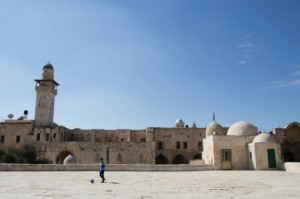
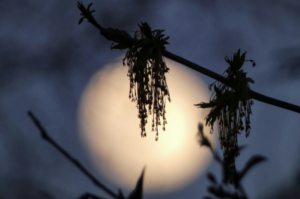

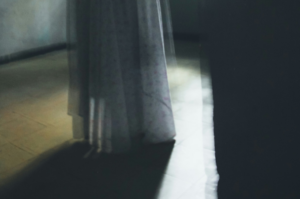

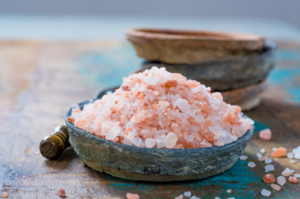

COMMENTS -
Reader Interactions